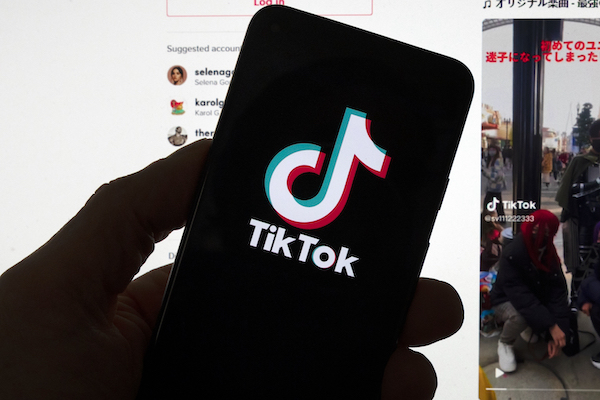Subscriber Benefit
As a subscriber you can listen to articles at work, in the car, or while you work out. Subscribe NowTikTok, the popular Chinese-owned social media app raising national security fears in the United States, has hired a lobbying firm in Indiana to educate state lawmakers about the platform’s efforts to secure the data of American users.
The company’s decision to hire The Corydon Group, an Indianapolis-based consulting firm, comes as several states, including Indiana, restrict access to the video-sharing platform on government-issued devices.
Utah went a step further last week, passing two bills that require age verification, impose a 10:30 p.m. curfew for minors and give residents the right to sue social media companies on behalf of children who claim they were harmed by content on their platforms. Arkansas is considering similar legislation.
Hoosier lawmakers haven’t taken those kinds of steps, but House Speaker Todd Huston, R-Fishers, wasn’t shy about voicing his dissatisfaction with social media when asked about Utah’s efforts.
“I’d love to figure out how to rein in social media. I think it’s not been a positive force in society,” Huston said Thursday, adding that any legislation would have to wait until next year’s legislative session.
Senate President Pro Tem Rod Bray, R-Martinsville, offered a similar sentiment.
“If we get rid of all social media, I think I’d be a very happy man,” he said. “It’s way too late in the game to start that conversation, but I think there might be some merit to it.”
The Corydon Group referred all questions about its lobbying efforts on behalf of TikTok to the company. TikTok offered the following statement: “Our team is focused on educating lawmakers about our robust and comprehensive plans to address national security concerns by securing U.S. user data on U.S. soil, and promoting a safe and secure experience for the more than 150 million Americans, including 5 million U.S. businesses, who enjoy TikTok.”
The Indiana Office of Technology banned the app on government-issued devices on Dec. 7, the same day Attorney General Todd Rokita filed a lawsuit against the company claiming it misleads its users about age-appropriate content and deceives consumers into thinking their information is secure.
Purdue University blocked the app on university-issued or -subsidized devices due to “concerns about cybersecurity risks to user data privacy, algorithmic censorship of free speech, and threats to national security,” the university said in a press release.
The White House blocked the app on government devices and has threatened a nationwide ban if Bytedance, the Chinese parent company of TikTok, doesn’t sell the app to an independent owner. But it’s unclear how a ban would be enforced.
In a nearly six-hour congressional hearing last week, TikTok CEO Shou Zi Chew denied sending any user data to the Chinese government, but federal officials have said the Chinese Communist Party can demand data from companies under Chinese law.
Artists, influencers and small-business owners who rely on the platform to generate revenue fear the impact a ban would have on content creators.
“[TikTok] opened the door for me to work in the film industry,” said Michael Corrie, a Martinsville native and movie prop maker who runs a TikTok channel called “Props to History” with more than 330,000 followers.
Corrie said he doesn’t buy the argument that some lawmakers are coming after the app for national security or data-privacy concerns.
“Seeing these efforts by our government to try and shut it down when they’re all bought and paid for by Meta—it’s a blatant attempt to make money by shutting down competition,” Corrie said.
Once a small player among tech giants, TikTok now has ad revenue that rivals those of Facebook parent company Meta Platforms, Alphabet Inc.’s Google, and Snapchat, all of which have laid off thousands of employees in the past year.
Meta paid a Republican consulting firm to facilitate a nationwide campaign against TikTok that painted the app as a danger to society, the Washington Post reported last year.
Please enable JavaScript to view this content.


Look for TikTok to be named the official app of the state of Indiana in next year’s session.
Our visionary lawmakers surely will advantage Indiana when they cast their gaze upon the media realm. Look what they did for Indiana banking! (It no longer exists.)